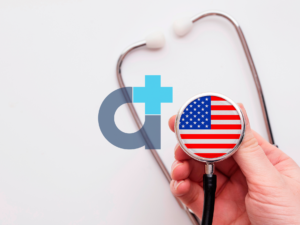As the global landscape continually shifts and molds, the United States remains a melting pot of cultures, backgrounds, and experiences. Within this dynamic ecosystem, healthcare stands out as a sector where multiculturalism isn’t just welcomed—it’s essential. But what exactly does diversity bring to the table in U.S. healthcare? Let’s delve deep into the myriad benefits.
A Rich Tapestry of Patient Experiences
1. Holistic Patient Care: Every culture has its own beliefs, practices, and traditions surrounding health and wellness. By embracing a diverse workforce, U.S. hospitals can provide care that respects and understands these nuances, leading to more holistic and patient-centered approaches.
2. Improved Communication: Language barriers can pose significant risks in healthcare settings. Multilingual staff, such as Spanish-speaking Mexican nurses, facilitate clear communication, ensuring that patients feel heard and understood.
3. Cultural Sensitivity: Beyond language, cultural sensitivity plays a pivotal role in healthcare. Understanding cultural stigmas, beliefs, or concerns can dramatically influence patient cooperation and trust.
Driving Innovation and Growth
4. Diverse Perspectives Lead to Better Solutions: A multicultural team brings a range of perspectives to the table. This diversity of thought can lead to innovative solutions, more comprehensive strategies, and improved patient outcomes.
5. Professional Development: Exposure to various cultures and practices can enhance the skills and knowledge of all healthcare professionals, driving continuous learning and professional growth.
Strengthening Community Bonds
6. Reflecting the Community: A diverse healthcare workforce can mirror the community it serves, fostering trust and a deeper connection between institutions and their patients.
7. Addressing Health Disparities: By understanding cultural backgrounds and needs, healthcare providers can better address and reduce health disparities that certain communities may face.
Empowering Global Health Initiatives
8. Collaboration on a Global Scale: Diversity in healthcare can foster international collaborations, share best practices, and address global health challenges more effectively.
9. Preparedness for Global Health Crises: A multicultural team can offer insights into how different cultures respond to health crises, ensuring that interventions and strategies are tailored and effective.
The beauty of multiculturalism in U.S. healthcare is that it not only enhances patient care but also enriches the professional experiences of those in the sector. The fusion of backgrounds, expertise, and perspectives creates an environment ripe for growth, innovation, and excellence.
At Aleph Medical, we believe that the heart of healthcare beats in many rhythms, each one contributing to a harmonious symphony of care. Embrace diversity; it’s where healthcare finds its true strength.











